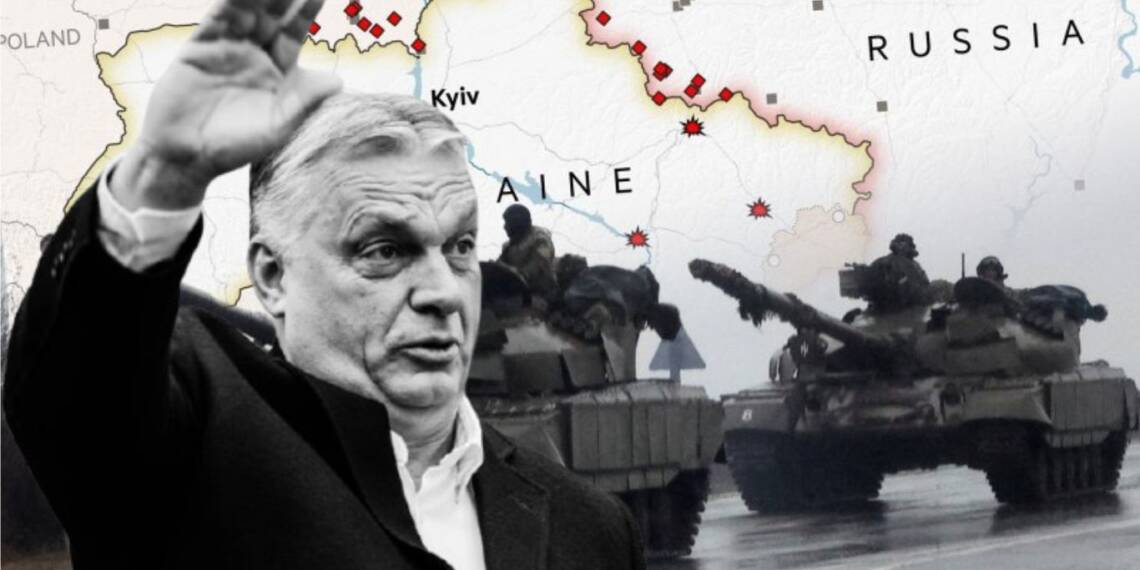Hungarian Prime Minister Viktor Orban warned the EU by saying that admitting Ukraine into the EU would only prolong the hostilities between Moscow and Kyiv and risk dragging the bloc into the conflict.
Ukraine has made EU membership a national priority. The country formally applied to join the bloc in February 2022. Hungary has pushed against the membership of Ukraine and the EU’s goal of admitting Ukraine by 2030 – a target recently reiterated by European Commission President Ursula von der Leyen.
Orban Practical Approach
Orban reiterated Hungary’s opposition to accession and called the decision could shape the bloc’s future for the worse. Speaking at the conference of EU parliamentary speakers in Budapest, he said, “As a country neighboring Ukraine, we believe that if Ukraine is admitted to the European Union, it will mean war.” He mentioned that the bloc has never admitted any country at war and for “good reason.”
Orban not only warned against the admission of Ukraine but also expressed regret over the commitment of some EU leaders to continued military aid for Kyiv.
He said, “We have a different view. We think the longer the war lasts, the more lives will be lost and the worse the situation will become on the battlefield.”
Orban has consistently opposed Ukraine’s entry into Western organizations, including NATO, contending that its membership could heighten tensions with Russia. He proposed that Ukraine should instead act as a “buffer” state between Russia and the West.
On practical terms, he looks more geopolitically logical than any other daydreaming European leader. Russia has long asked the EU and the US not to admit Ukraine into NATO due to national security reasons, knowing the nature of the organization. However, the West has pushed NATO towards the Russian border time and again, which has created the current crisis between Russia and Ukraine.
Road to EU looks Difficult for Ukraine
Ukraine still encounters significant obstacles on its journey toward EU membership, which requires unanimous approval from all member states and extensive reforms, including anti-corruption measures, better governance, and alignment of its legal system with EU standards.
Although Russia has repeatedly rejected Ukraine’s potential NATO membership, its stance on EU accession has been more cautious. Kremlin spokesman Dmitry Peskov has acknowledged Ukraine’s “sovereign right” to join the EU, as long as the move is limited to economic integration and not military cooperation.
Still, Russian officials have cautioned that the distinction between civilian and military functions within the EU is increasingly unclear. Peskov has accused the bloc of attempting to prolong the conflict in Ukraine by continually voicing support for Kyiv’s intention to “continue the war.” He has also accused Brussels of weakening peace initiatives by casting Russia as the EU’s main opponent.
Foreign Minister Sergey Lavrov has claimed that the EU is “becoming militarised at a record pace,” noting that the difference between the EU and NATO is now “very little.” This statement was in the context of the military budget being increased by the major EU’s membership recently.








